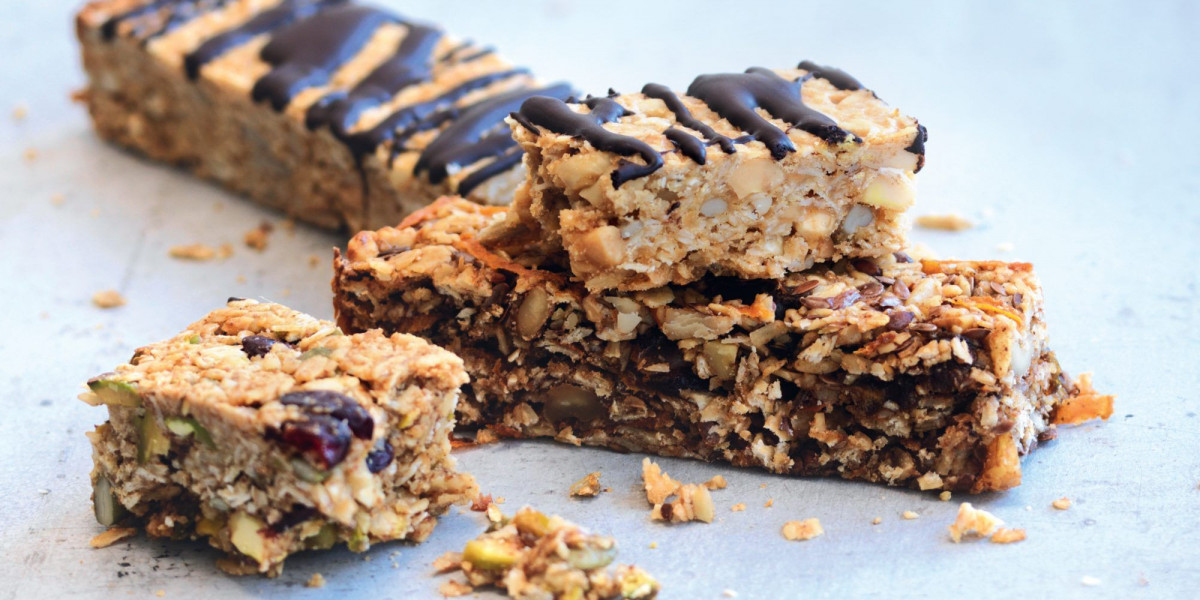Introduction
As the demand for clean, plant-based nutrition grows, athletes and fitness enthusiasts are turning toward vegan protein bars as a convenient and performance-supporting fuel. The vegan protein bar market has witnessed significant growth in the sports nutrition segment, driven by increasing awareness of plant-based diets, digestive-friendly ingredients, and ethical considerations. This article explores how the market is evolving to meet the specific needs of active consumers, the trends shaping innovation, and why vegan protein bars are becoming a gym bag staple.
Shifting Nutrition Trends in Sports and Fitness
The traditional dominance of animal-based protein sources in sports nutrition is gradually giving way to plant-based alternatives. Athletes are increasingly seeking vegan protein bars that deliver comparable performance benefits without the side effects of dairy or synthetic additives.
Key Factors Influencing This Shift:
Lactose intolerance and dairy sensitivity common among active individuals
Rising awareness of inflammation and recovery benefits linked to plant-based eating
Environmental and ethical concerns related to animal agriculture
Celebrity and influencer endorsements of vegan fitness lifestyles
As a result, the vegan protein bar market is now viewed not just as a lifestyle choice, but as a performance-oriented solution for serious athletes and casual gym-goers alike.
Nutritional Needs of Active Consumers
Fitness enthusiasts have unique nutritional requirements, and vegan protein bars are being tailored to match those demands.
Top Features Sought by Athletes:
High protein content (15–25g per bar) from sources like pea, rice, hemp, and soy
Balanced macronutrient profiles with healthy fats and complex carbs
Clean ingredients free from artificial additives, sweeteners, and preservatives
Added functional benefits, such as BCAAs, electrolytes, and adaptogens
Digestive support with fiber, probiotics, or low-FODMAP formulations
To stay competitive, brands in the vegan protein bar market are enhancing the bioavailability and taste of their products while ensuring they meet the energy and recovery needs of an athletic audience.
Product Positioning and Branding
Fitness-oriented vegan protein bars are often marketed differently than general plant-based snacks. These products emphasize performance, strength, and recovery.
Common Branding Themes:
“Fuel for performance” or “Powered by plants”
Emphasis on muscle recovery, endurance, and stamina
Highlighting lab-tested purity, certifications (e.g., NSF Certified for Sport)
Athlete testimonials and fitness influencer partnerships
Brands like No Cow, Vega, and PlantFusion have positioned themselves at the intersection of plant-based nutrition and athletic performance, helping elevate the category in the broader sports nutrition market.
Packaging and Convenience for On-the-Go Lifestyles
Active individuals require nutrition that fits seamlessly into busy routines. The vegan protein bar market meets this need by offering compact, portable, and shelf-stable options.
Convenience-Driven Innovations:
Resealable multi-bar packs for gym bags
Bars designed for pre-workout energy or post-workout recovery
High-stamina formulas for endurance athletes and outdoor enthusiasts
This portability factor is one of the major reasons for the increasing preference for protein bars over shakes or whole-food meals in athletic settings.
Trends Shaping Product Development
As the athlete segment grows within the vegan protein bar market, several trends are shaping product innovation.
Emerging Trends:
Minimal-ingredient, “clean label” bars with whole foods like nuts, seeds, and dates
Keto and low-sugar options for athletes following specialized diets
Collagen-boosting vegan alternatives (e.g., silica, vitamin C, plant peptides)
Bars designed for specific sports like endurance running, CrossFit, or yoga
Sustainable packaging aligned with athletes’ eco-conscious values
Consumers are also looking for bars that align with values like cruelty-free production, carbon neutrality, and social impact—further driving innovation in formulation and branding.
Retail Channels and Accessibility
While traditional gyms and health stores remain key distribution points, athletes are increasingly turning to online channels for their preferred bars.
Popular Distribution Channels:
E-commerce platforms like Amazon, iHerb, and brand websites
Specialty fitness retailers and supplement stores
In-gym vending machines or nutrition counters
DTC subscription boxes curated for sports nutrition
The vegan protein bar market is expanding its visibility in both digital and physical spaces, allowing athletes of all levels to easily access performance-supporting products.
Global Athletic Appeal
Athletes worldwide are embracing plant-based diets, propelling global interest in vegan performance products. Countries like the U.S., U.K., Germany, and Australia lead the trend, while emerging markets in Asia and Latin America are beginning to follow suit.
Growth Opportunities:
Collaborations with fitness events and competitions
Partnerships with plant-based sports ambassadors
Localized flavors and formulations tailored to regional preferences
This growing international demand underscores the importance of global strategy for brands seeking long-term success in the athlete segment of the vegan protein bar market.
Conclusion
The convergence of fitness trends, clean eating, and ethical consumerism is transforming the vegan protein bar market, particularly among athletes and fitness enthusiasts. With a focus on performance, recovery, and clean nutrition, vegan protein bars are earning their place alongside traditional sports supplements. As consumer expectations evolve, the brands that can balance science, flavor, and sustainability will lead the charge in shaping the future of plant-powered performance.









